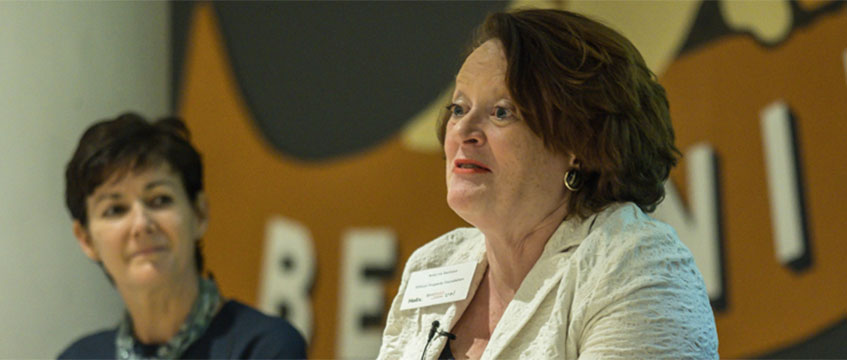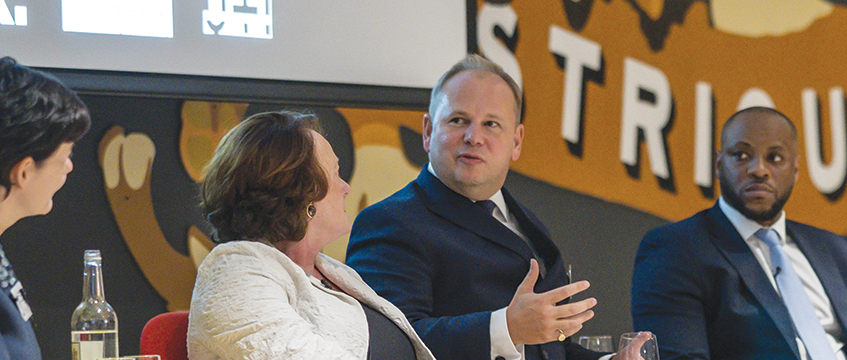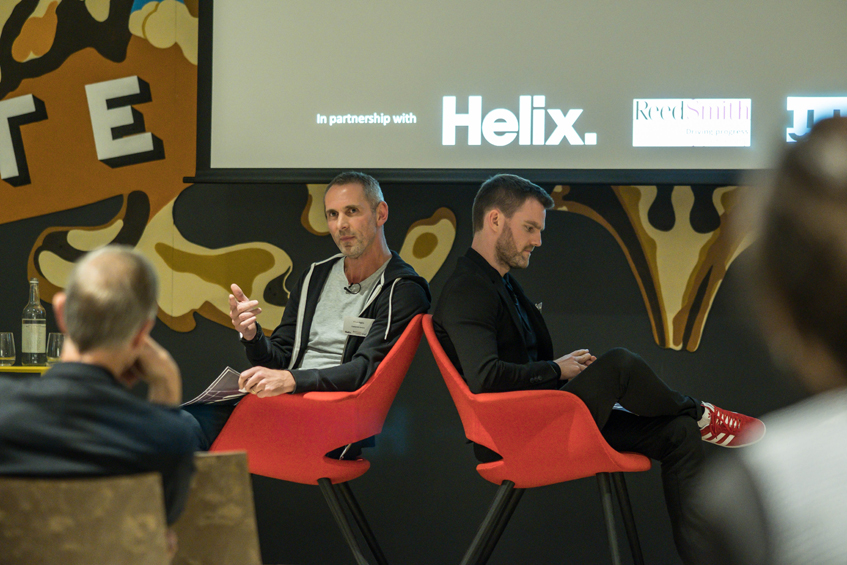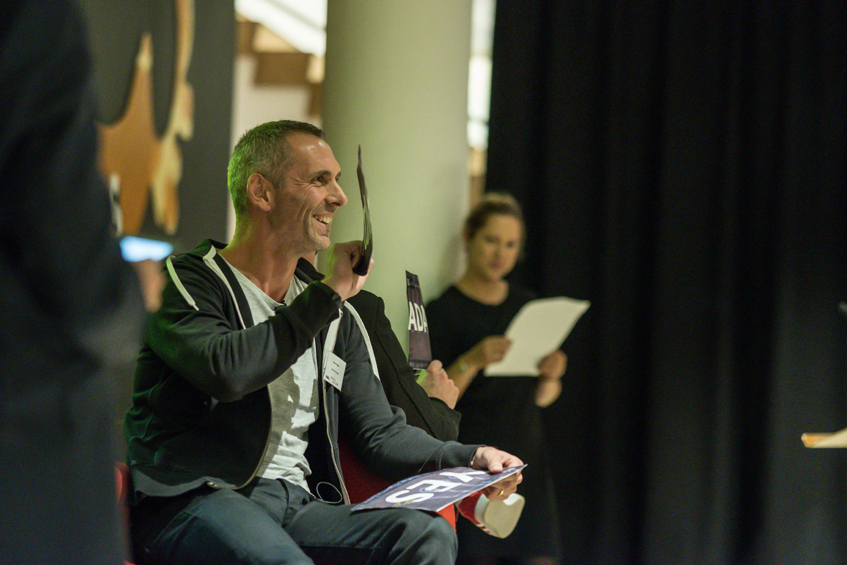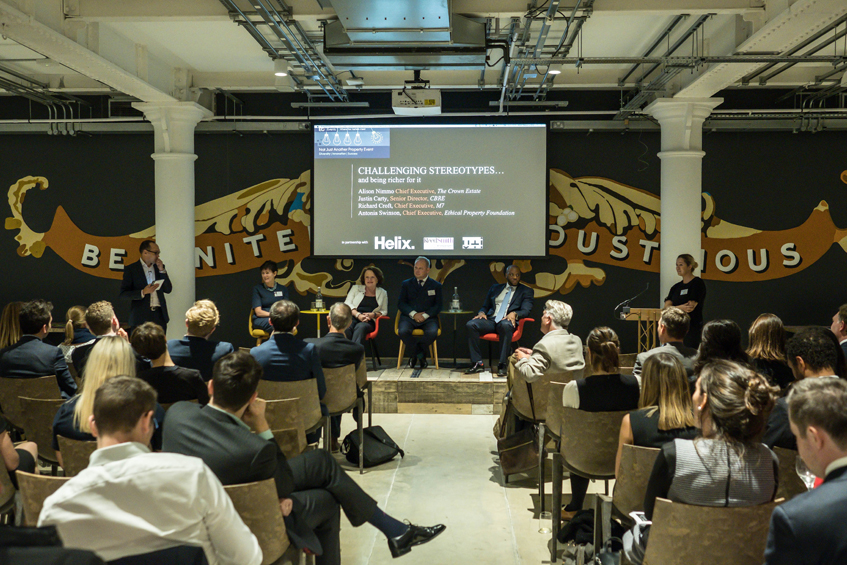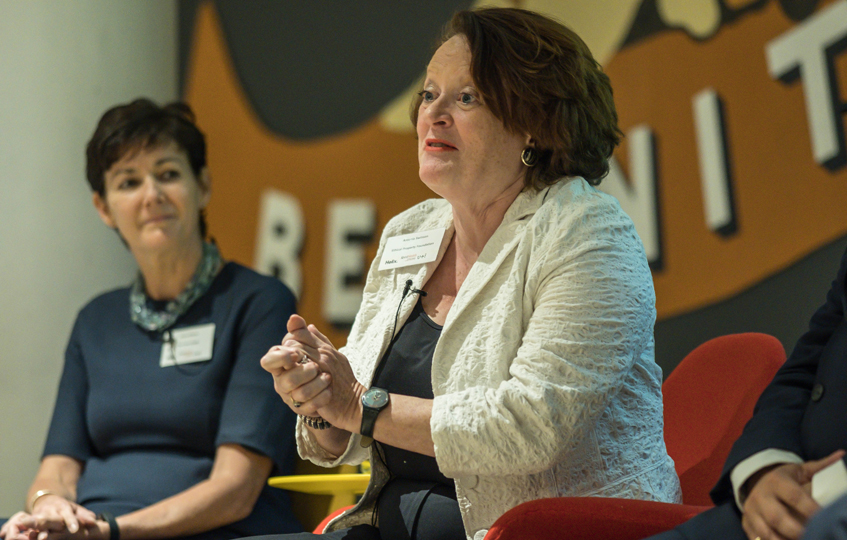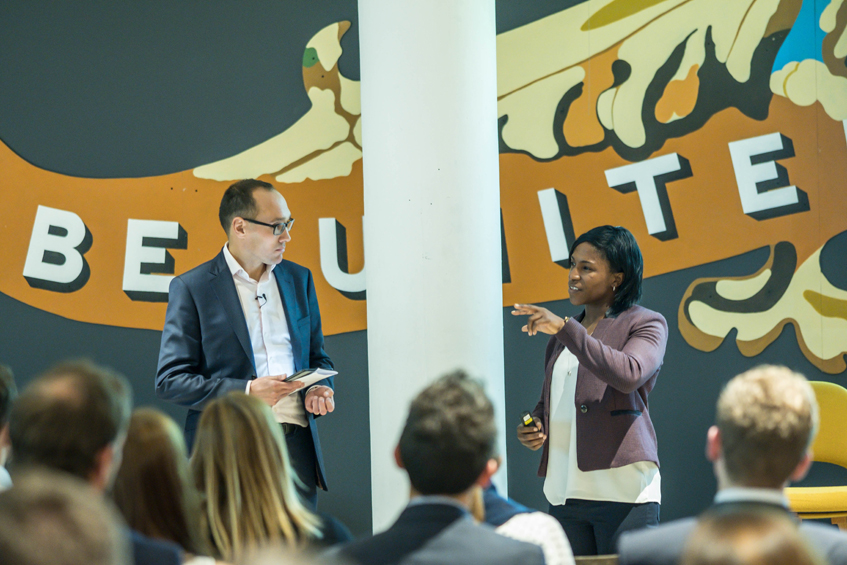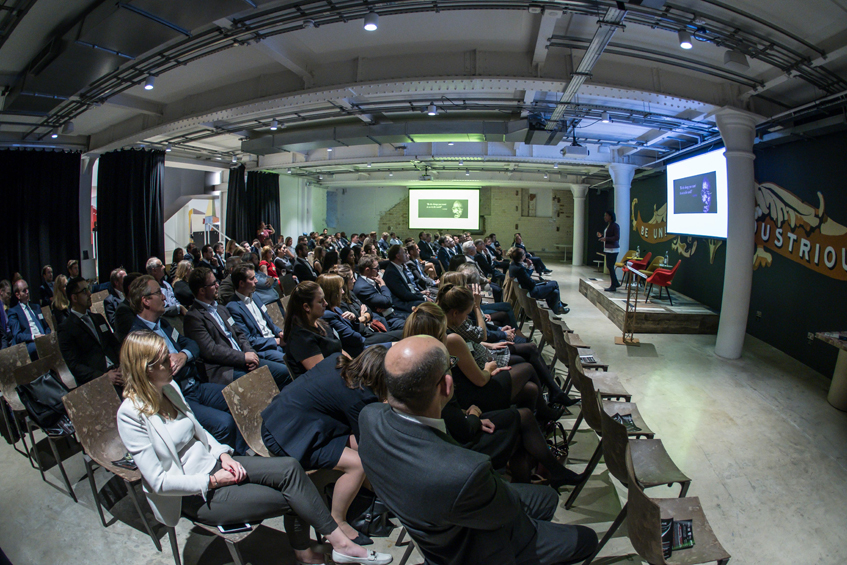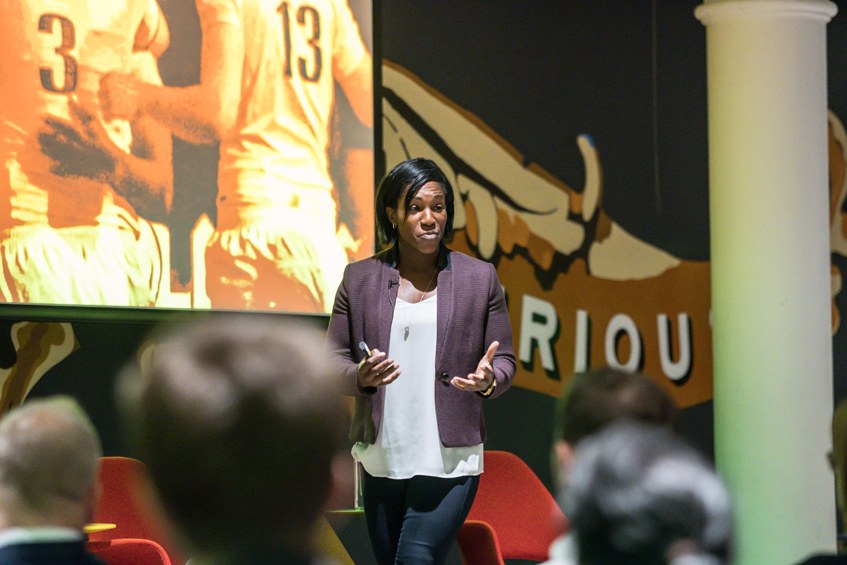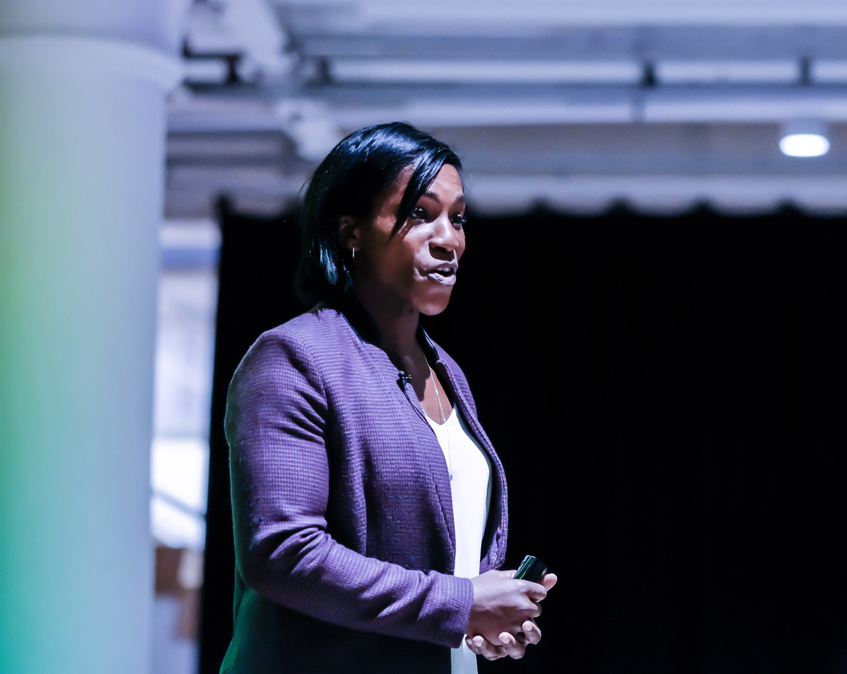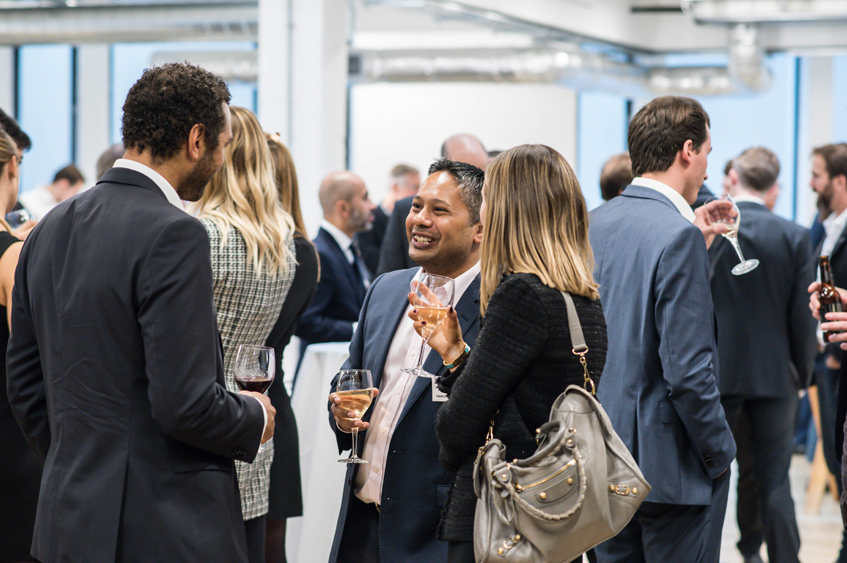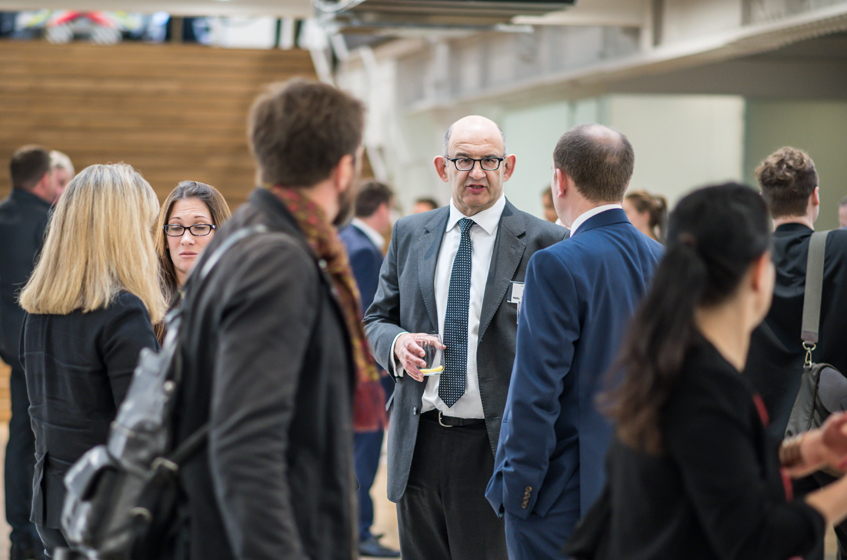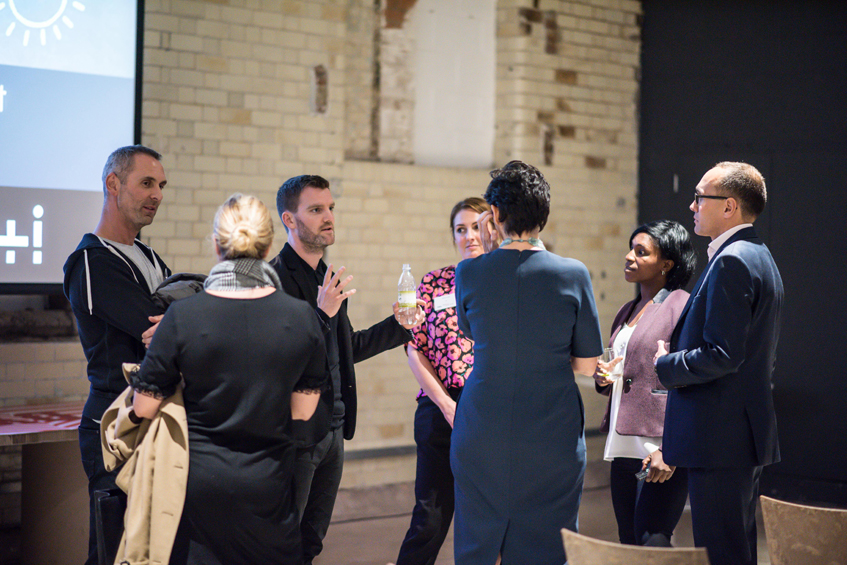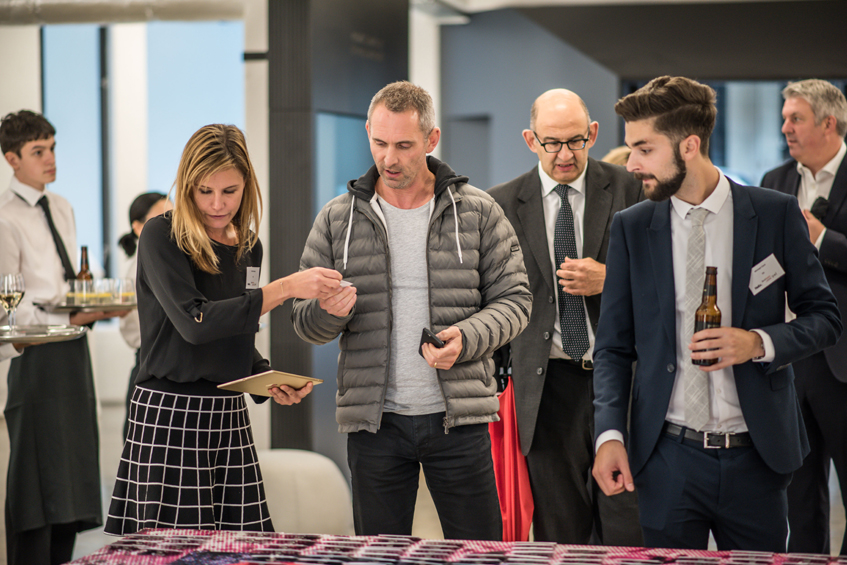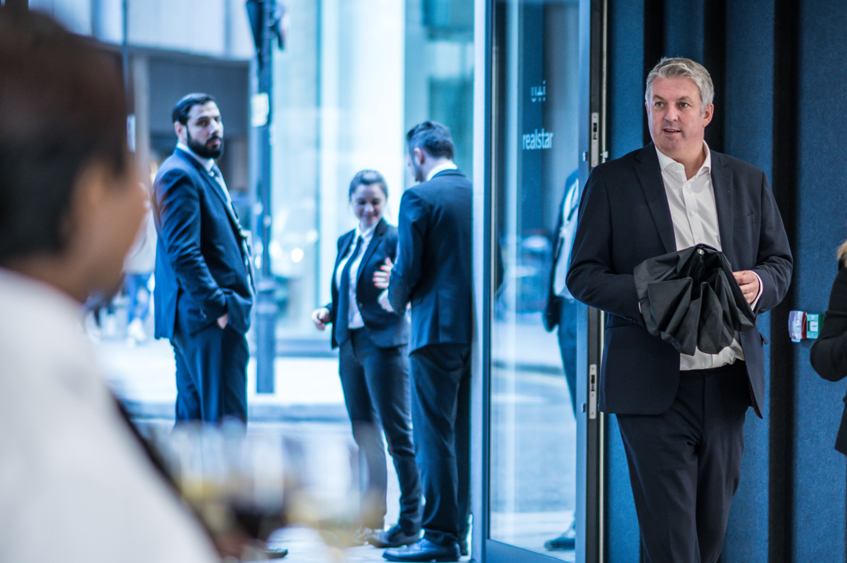We use words such as “innovative”, “diverse” and “collaborative” to describe our businesses. But when are these terms more than just hot air? At EG’s Not Just Another Property Event last week, co-chaired by editor Damian Wild and Built-ID founder Savannah de Savary, the panellists attempted to separate platitudes from reality.
De Savary: How would you define innovation?
Richard Croft: Innovation is really about taking the ideas you have and enacting them. It’s easy to have ideas; it’s less easy to make them a reality.
Alison Nimmo: We have tried to transform the Crown Estate from a traditional landed estate into a modern progressive business, which in its way is innovative. One of the ways we’ve transformed is to move to one of our developments (a fantastic building in St James’s) and put the whole business on a single floor.
Wild: Do you think lack of diversity is a brake on innovation in the property industry?
Justin Carty: When I joined CBRE 11 years ago, there were only two black fee earners. Now there’s a huge number. Through our apprenticeship scheme, our graduate scheme and the more junior members of staff, a greater diversity of people are now aware of the property industry.
De Savary: Do you think we need to do more to make young people know that it’s a great industry to be in?
Nimmo: We have a great outreach programme with Reading Real Estate Foundation to try to catch some of these young people – not from the usual backgrounds that come into property – at an early age, and a lot of them are from very deprived parts of London. They come in thinking we’re a bunch of estate agents, and they go out completely inspired about what the profession can do.
Croft: Five out of our 16 partners are women. I’d like it to be higher. Half of our 190 staff are women, and we have a very broad nationality mix across the firm. That’s not been deliberate – we’ve tried to hire the right people for the job and nature takes its course.
De Savary: What are the cultures and values of the people you want to attract?
Carty: A hard work ethic is the first thing when thinking about a new recruit. They’ve also got to be people you really want to be around. I want to work with people I like, and who would go the extra mile. It’s important to have a personality and a level of confidence.
Antonia Swinson: Work has to be inventive and fun. I manage a small team of five paid staff, and also have relationships with 50 property professionals. Forty per cent of our staff are from ethnic minorities, and 40% are way over retirement age. Our diverse workforce is a huge strength in the voluntary sector.
Nimmo: A lot of people look at technical skills that people have, but I would say integrity and reputation are also really important to what we do at the Crown Estate. Our breakthrough moments were starting the transformation of Regent Street, back in 2004, and then doing our first joint venture with Norges – out of necessity, because we can’t borrow. That was quite innovative at the time. Once you start joint venturing like that, and you’re looking after other people’s money, it really professionalised the business.
The panellists
■ Alison Nimmo, chief executive, the Crown Estate
■ Antonia Swinson, chief executive, Ethical Property Foundation
■ Richard Croft, chief executive, M7 Real Estate
■ Justin Carty, senior director, CBRE
Co-chaired by:
■ Savannah de Savary, chief executive, Built-ID
■ Damian Wild, editor, EG
■ EG’s Not Just Another Property Event in partnership with Helix, Reed Smith, U+I
Croft: 10 years since Northern Rock
Ten years on from the collapse of Northern Rock, M7’s Richard Croft talks about his experience of the financial crisis, steering Halverton through turbulent times.
“It felt terrible. I don’t think I made a good decision from March 2007 to October 2008, when I had six months’ gardening leave. It was a terrible experience and I don’t remember one good thing about it. Everything we do is coloured by remembering what that was like. The entire infrastructure of the business is coloured by what happened in 2008, when the world collapsed. I was sitting in meetings and wasn’t even sure the currency was going to exist in four days’ time. There was very little I could do, and I was utterly hopeless.
“It was really quite horrid, and I think at the particular time, everybody wasn’t sure what was going to happen next. I felt like Nero fiddling while Rome burned, and it was very obvious from May 2008 there was going to be a lot of pain and that it was a train wreck. Everybody who went through that is pretty determined it won’t happen again.”
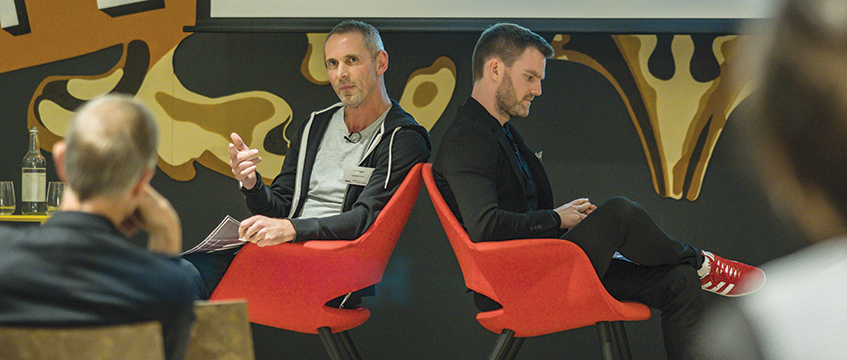
Footballers and funding make sense
Premier League footballers make better funding partners than traditional property funds.
That was the argument put forward last week at EG’s Not Just Another Property Event by the co-founders of Capital & Centric. Manchester-based Adam Higgins and Tim Heatley used word of mouth in 2013 to enlist five Liverpool players to bring forward two office buildings in Merseyside.
The properties were developed under the Building Premises Renovation Allowance, a scheme that provides tax breaks to investors in specific locations.
Heatley explained: “I don’t know anything about football, and I think they found that quite refreshing as I was really just interested in their money.
“They had no preconceptions about property and therefore were open to our sometimes unusual approach to how you can go about regeneration. It’s very different to our experience with funds, which can be quite difficult, constrained and not prepared to look at things in such a radical way.”
The pair took part in a wide-ranging discussion about Capital & Centric’s development pipeline, the housing crisis, and how they first formed the business in the doldrums of 2011.
The partners answer questions from co-chairs Damian Wild, EG editor, and Savannah de Savary, chief executive, Built I-D:
Who is the most risk averse?
Higgins: Tim would have gone bust about 15 times over the last seven years. He needs me to keep him on the straight and narrow.
What’s your partner’s most annoying habit?
Heatley: Adam has a knack of being able to identify the single thing you haven’t thought about – the most difficult question.
If you could save one thing from the office, what would you bring?
Higgins: I would save the only thing of any value in the office: myself.







